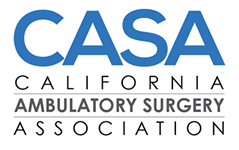Complete Story
05/13/2025
CASA Celebrates Asian American and Pacific Islander (AAPI) Heritage Month
Asian Americans are currently the fastest-growing ethnic group in the United States and represent the second-largest community of small business owners nationally. This vibrant population includes over 23 million individuals from more than 40 unique ethnoracial groups, each contributing their distinct traditions and experiences. Within healthcare, Asian Americans constitute over 20% of medical students, trainees, and practicing physicians, significantly higher than their general representation in the U.S. population (7%). Overall. AAPI workers make up a large portion of the essential workers on the frontlines, with 1.4 million AAPI healthcare workers representing 8.5% of all essential healthcare workers.
Despite these successes, important disparities remain. In California, about 3 in 10 Asian Americans report challenges accessing health services, with common barriers including financial cost, limited awareness of available resources, lack of insurance coverage, and language barriers.
We can actively support the AAPI community by:
- Advocating for representation: Support and promote initiatives that amplify AAPI voices, and share resources to raise awareness about community-specific issues and effective solutions.
- Exploring cultural heritage: Participate in cultural festivals, community events, and visit museums to learn more about AAPI history and heritage.
- Supporting anti-discrimination efforts: Stand against racism and discrimination by engaging in advocacy, raising awareness, and taking positive actions.
The CASA DEI Committee is dedicated to promoting diversity, equity, and inclusion throughout the year. We encourage CASA members to share personal stories or nominate colleagues to be featured in upcoming newsletters. To participate or learn more, please contact CASA Executive Director Beth LaBouyer at blabouyer@casurgery.org.
Member Spotlight
Binh X Nguyen, CASC, Chief Operating Officer: Newport Center Surgical
What does Asian American and Pacific Islander Heritage Month mean to you, and how do you celebrate or honor your heritage during this time?
AAPI month means a time for me to slow down and enjoy life. I make extra time to spend with family and friends to celebrate my culture and heritage as a Vietnamese American. We head down to Little Saigon in Orange County and enjoy the food and culture. We make traditional Vietnamese food from scratch, such as Pho, Vietnamese Stew and Banh Mi.
Who is an AAPI individual—historical or contemporary—that has inspired or influenced you, and why?
That would be my mother. She passed away when I was in my early twenties because of cancer, but has left me with a strong work ethic and she taught me to be kind to others. We came to the United States a few years after the fall of Saigon. She did not speak much English but worked multiple jobs and did her best to provide us with a roof over our head and food on the table. She was kind to everyone and respected everyone’s opinions. I try to live my life by being kind and paying it forward as my mother has inspired me to do.
In your opinion, what is a common misconception or stereotype about your culture or heritage that you wish more people understood better?
Everyone has heard the stereotype of Asians being good at math. Another misconception or stereotype about my culture is that we are passive and do not speak up for ourselves. This especially happens to the older generation that may not speak English well. This leads to verbal or physical abuse from others who do not understand our culture. The Vietnamese culture is not about being loud and in your face. It’s about working hard, taking care of your family, and being humble.
What aspect of your cultural heritage has most shaped your leadership style or approach to patient care?
Coming from an Asian culture, we are taught to respect our elders and take care of them. My leadership style has always been to listen and learn before leading and delegating. Regarding patient care, I am open-minded about every request and/or concern a patient may have, and I work to address their needs to the best of my ability. For the elder patients, I make a conscious effort to slow down and make sure they are understanding everything I am saying, as though I were speaking to my grandmother.


